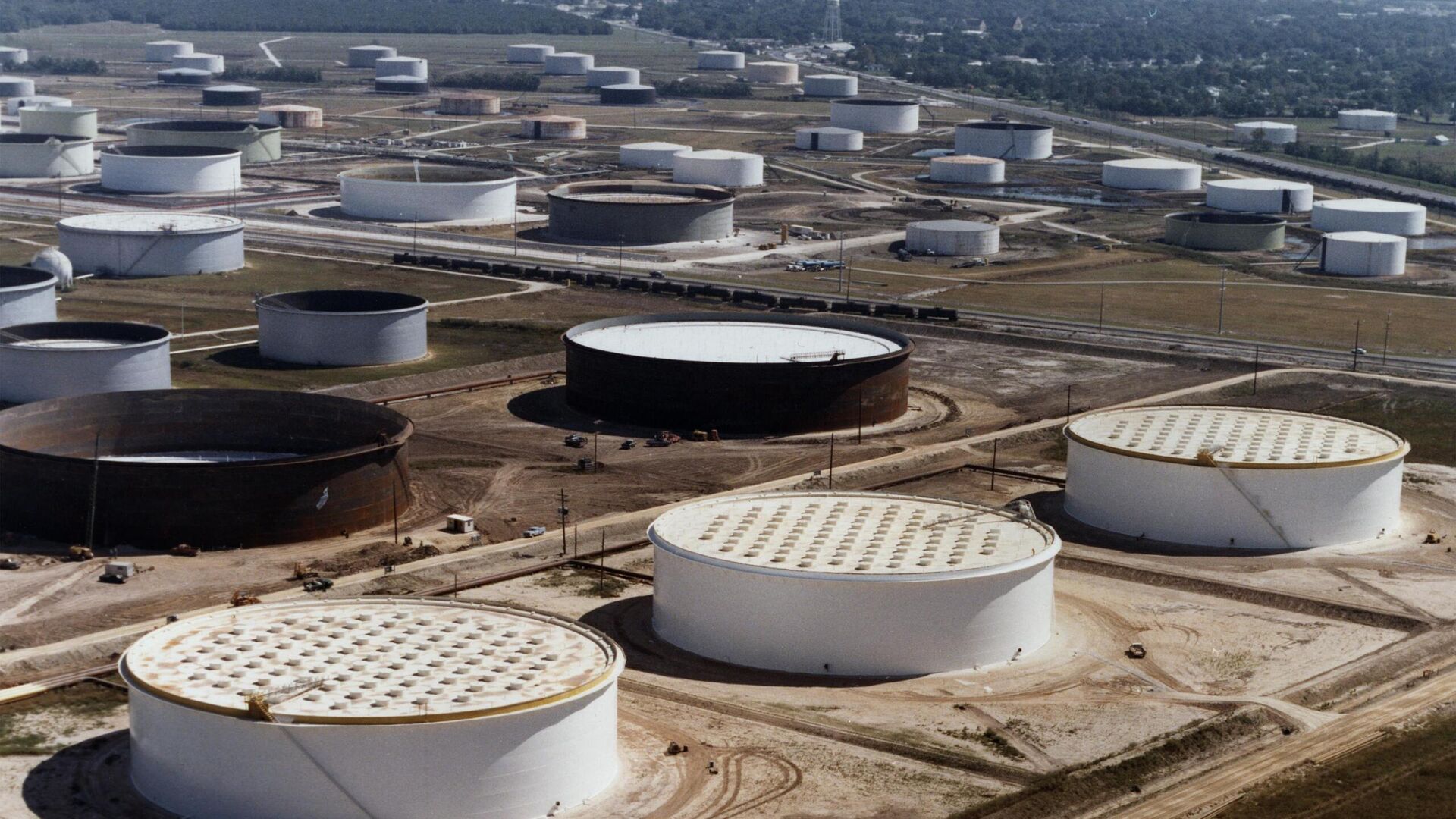https://sputnikglobe.com/20220913/us-considers-refilling-strategic-petroleum-reserve-if-oil-prices-drop-below-80-a-barrel---report-1100736970.html
US Considers Refilling Strategic Petroleum Reserve if Oil Prices Drop Below $80 a Barrel - Report
US Considers Refilling Strategic Petroleum Reserve if Oil Prices Drop Below $80 a Barrel - Report
Sputnik International
In March, US President Joe Biden announced a massive release of the country's strategic petroleum reserve (SPR) into the market in an effort to curb the... 13.09.2022, Sputnik International
2022-09-13T17:50+0000
2022-09-13T17:50+0000
2022-09-13T19:00+0000
americas
us
petroleum
strategic petroleum reserves
biden administration
https://cdn1.img.sputnikglobe.com/img/07e6/03/1f/1094365039_0:0:2560:1441_1920x0_80_0_0_9934dd6454a7bc5ca60f04a72090eec6.jpg
According to reports by Bloomberg on Tuesday, the Biden administration will consider beginning to refill the reserve once crude oil prices dip below $80 a barrel.On Monday, US Department of Energy data showed that the SPR stock had fallen to 434.1 million barrels of crude oil, its lowest point since 1984. Last week, the department sold 8.3 million barrels of the stock to oil refiners, more than the roughly 1 million barrels per day release that Biden announced in March.Despite the US' domestic need to bring down gas prices, the OPEC+ petroleum cartel that includes many US allies has a keen interest in keeping crude oil prices above $90 a barrel. Last week, OPEC agreed to collectively cut crude output by 100,000 barrels per day. In July, Biden traveled to Saudi Arabia in a doomed attempt to convince the monarchy to lower gas prices.In June, Biden slammed oil giant ExxonMobil for making "more money than God," and when ExxonMobil and Chevron released their second-quarter earnings reports in late July, they revealed a quadrupling of profits over the same period in the previous year.Despite the SPR release and large increases to interest rates by the Federal Reserve, inflation has remained high: the Bureau of Labor Statistics' Consumer Price Index CPI), which tracks changes in the prices of staple goods, reported on Tuesday that there had been an 8.3% increase in commodity prices over the previous year in August 2022 - among the highest seen in the last year. The news sent NYSE into a tailspin, with the Dow Jones down more than 900 points in afternoon trading.
americas
Sputnik International
feedback@sputniknews.com
+74956456601
MIA „Rossiya Segodnya“
2022
News
en_EN
Sputnik International
feedback@sputniknews.com
+74956456601
MIA „Rossiya Segodnya“
Sputnik International
feedback@sputniknews.com
+74956456601
MIA „Rossiya Segodnya“
us, petroleum, strategic petroleum reserves, biden administration
us, petroleum, strategic petroleum reserves, biden administration
US Considers Refilling Strategic Petroleum Reserve if Oil Prices Drop Below $80 a Barrel - Report
17:50 GMT 13.09.2022 (Updated: 19:00 GMT 13.09.2022) In March, US President Joe Biden announced a massive release of the country's strategic petroleum reserve (SPR) into the market in an effort to curb the steeply rising price of gasoline. Weeks earlier, he implemented a total boycott on Russian energy exports, pressuring the rest of the globe to follow.
According to reports by Bloomberg on Tuesday, the Biden administration will consider beginning to refill the reserve once crude oil prices dip below $80 a barrel.
On the oil markets on Tuesday, Brent Crude from the North Sea was trading at $92.71 per barrel, while West Texas Intermediate (WTI), the New York Stock Exchange futures benchmark that's pumped in the Great Plains, was netting a lower $87.76 per barrel.
On Monday, US Department of Energy
data showed that the SPR stock had fallen to 434.1 million barrels of crude oil, its lowest point since 1984. Last week, the department sold 8.3 million barrels of the stock to oil refiners, more than the roughly 1 million barrels per day release that Biden announced in March.
Despite the US' domestic need to bring down gas prices, the OPEC+ petroleum cartel that includes many US allies has a keen interest in keeping crude oil prices
above $90 a barrel. Last week, OPEC
agreed to collectively cut crude output by 100,000 barrels per day. In July, Biden traveled to Saudi Arabia in a doomed attempt to
convince the monarchy to lower gas prices.
Biden
pledged in late March to begin the largest and longest SPR release in history, a pace of 1 million barrels per day for six months, or 182 million barrels of oil. The crude was sold to oil companies, who responded by selling it in markets with higher prices, such as Europe, and raking in record-breaking profits while gasoline prices in the US continued to skyrocket.
In June, Biden
slammed oil giant ExxonMobil for making "more money than God," and when ExxonMobil and Chevron released their second-quarter earnings reports in late July, they
revealed a quadrupling of profits over the same period in the previous year.
High oil prices have been blamed for high gasoline prices, and both trends have been blamed in the public eye for driving record inflation in the US and many other countries. However, an April study by the Economic Policy Institute found that corporate profits accounted for 54% of inflation in the United States in 2021 and 2022, meaning companies increasing their prices because consumers expect price increases have made inflation caused by other issues, such as pandemic-related expenses, to be twice as bad.
Despite the SPR release and large increases to interest rates by the Federal Reserve, inflation has remained high: the Bureau of Labor Statistics' Consumer Price Index CPI), which tracks changes in the prices of staple goods, reported on Tuesday that there had been an 8.3% increase in commodity prices over the previous year in August 2022 - among the highest seen in the last year.
The news
sent NYSE into a tailspin, with the Dow Jones down more than 900 points in afternoon trading.




